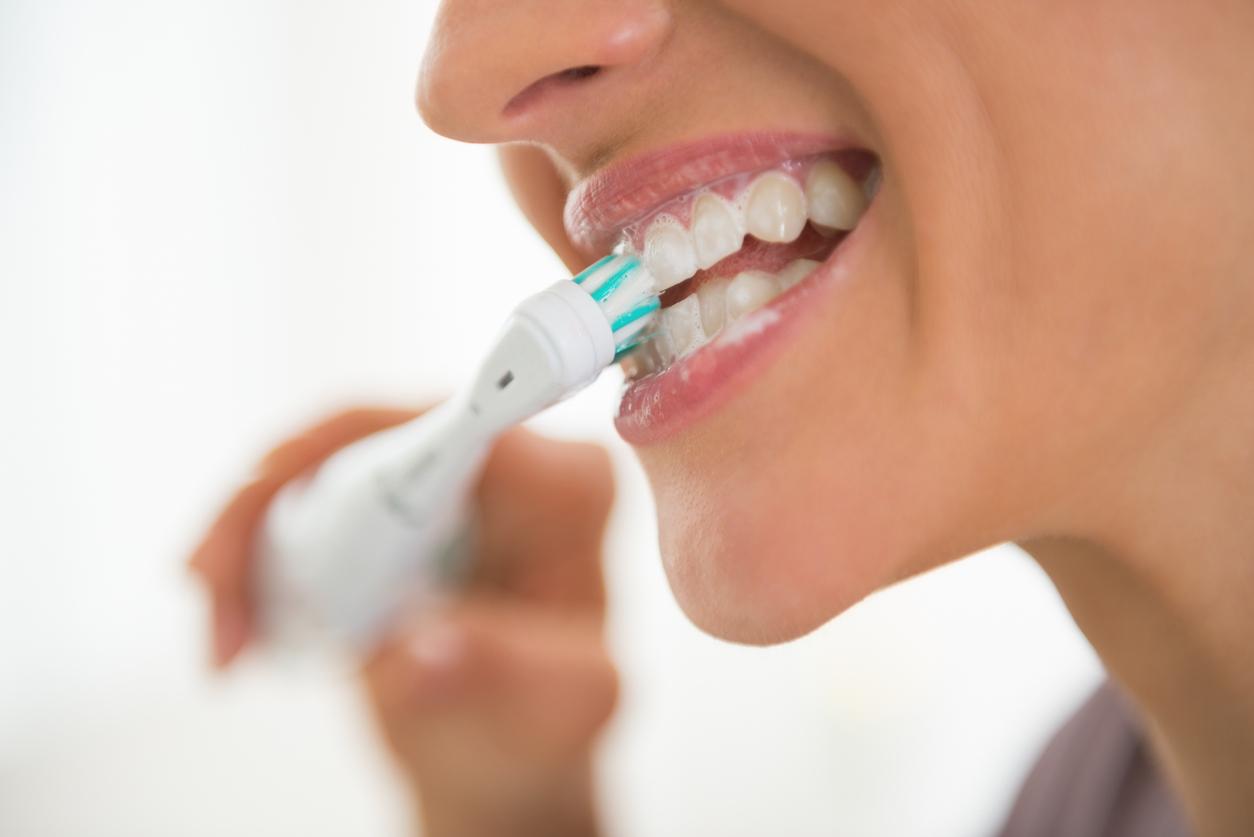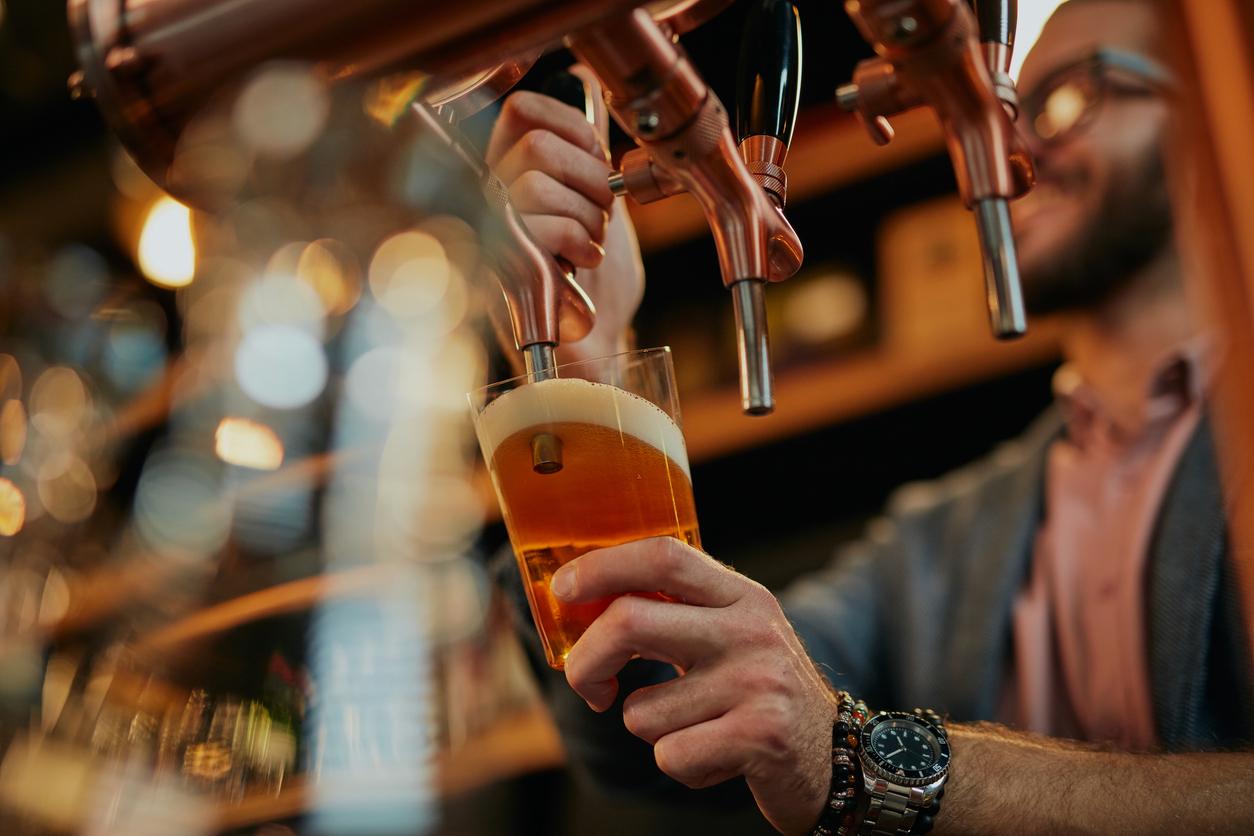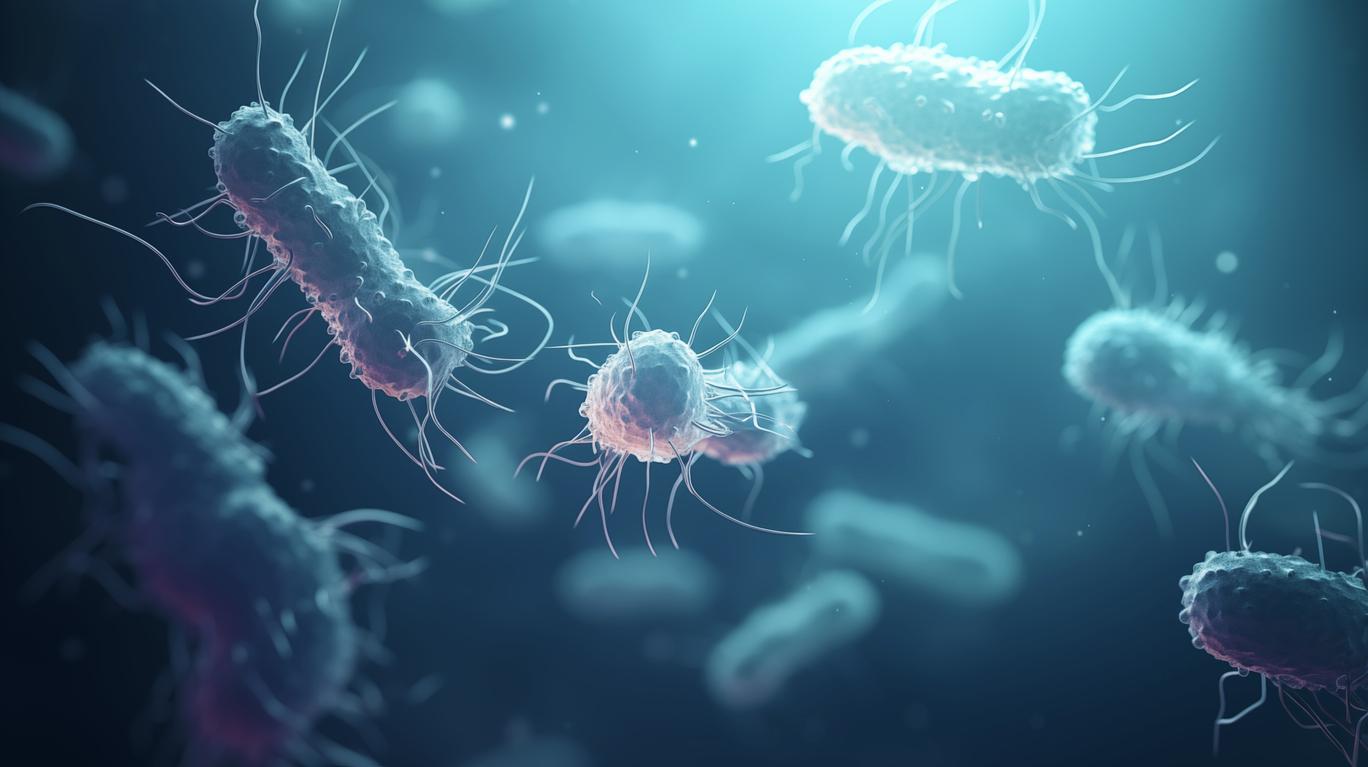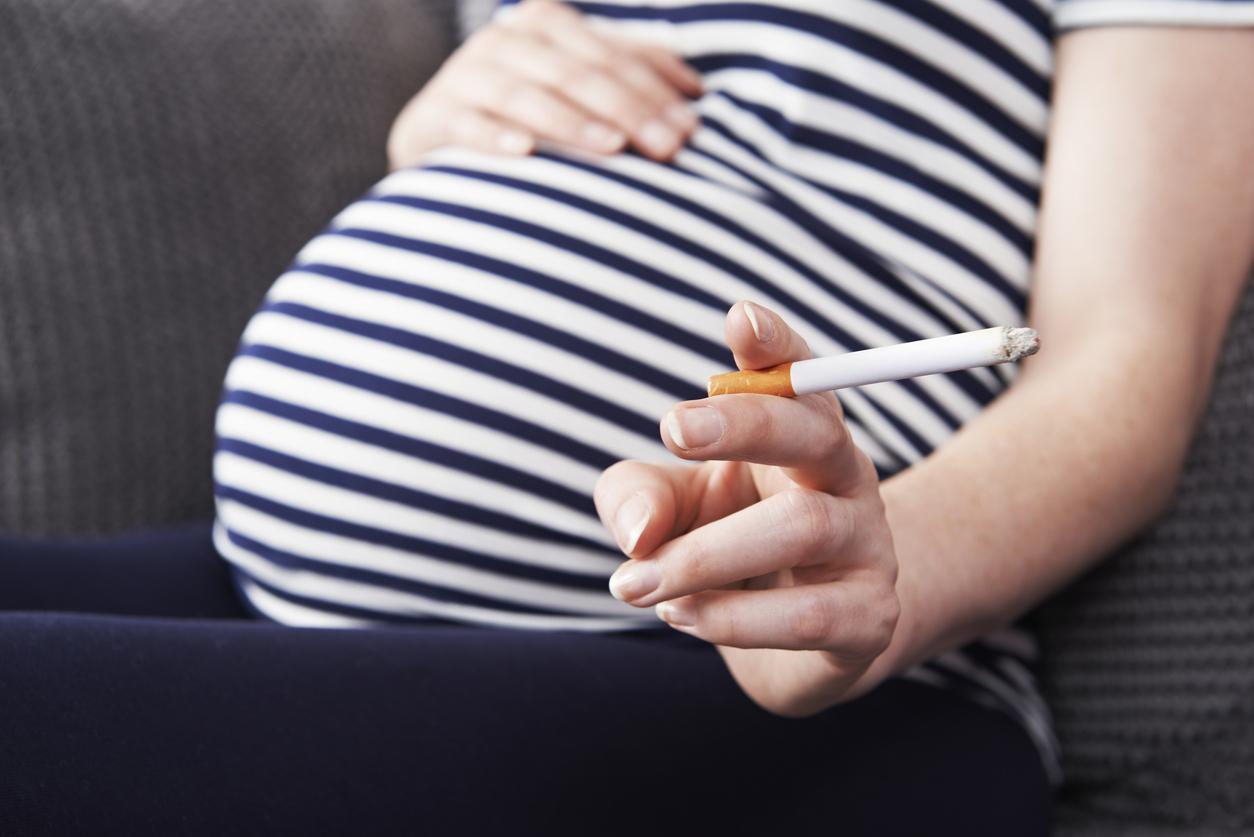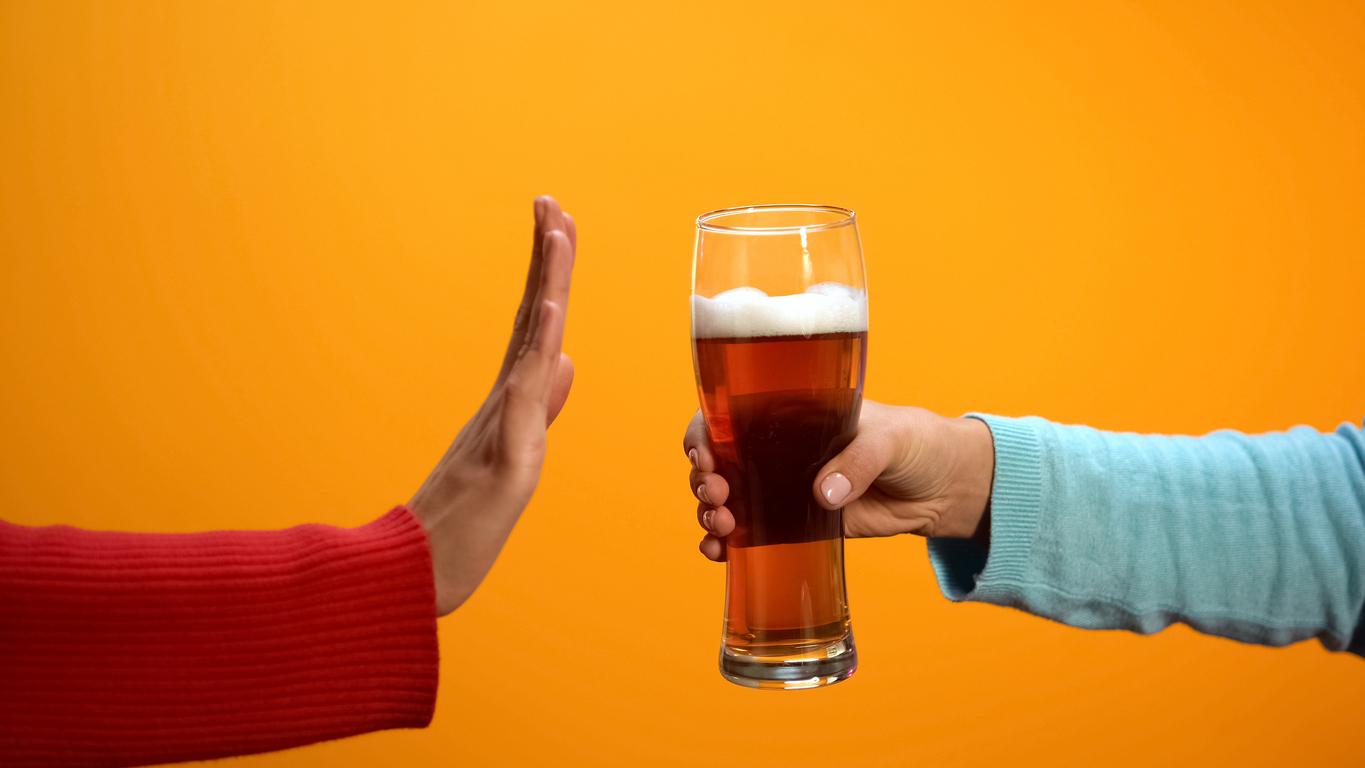A Cornell University study finds that the lack of alcohol in non-alcoholic or low-alcohol beer is likely to create conditions for the growth of pathogens and bacteria in the beverage.
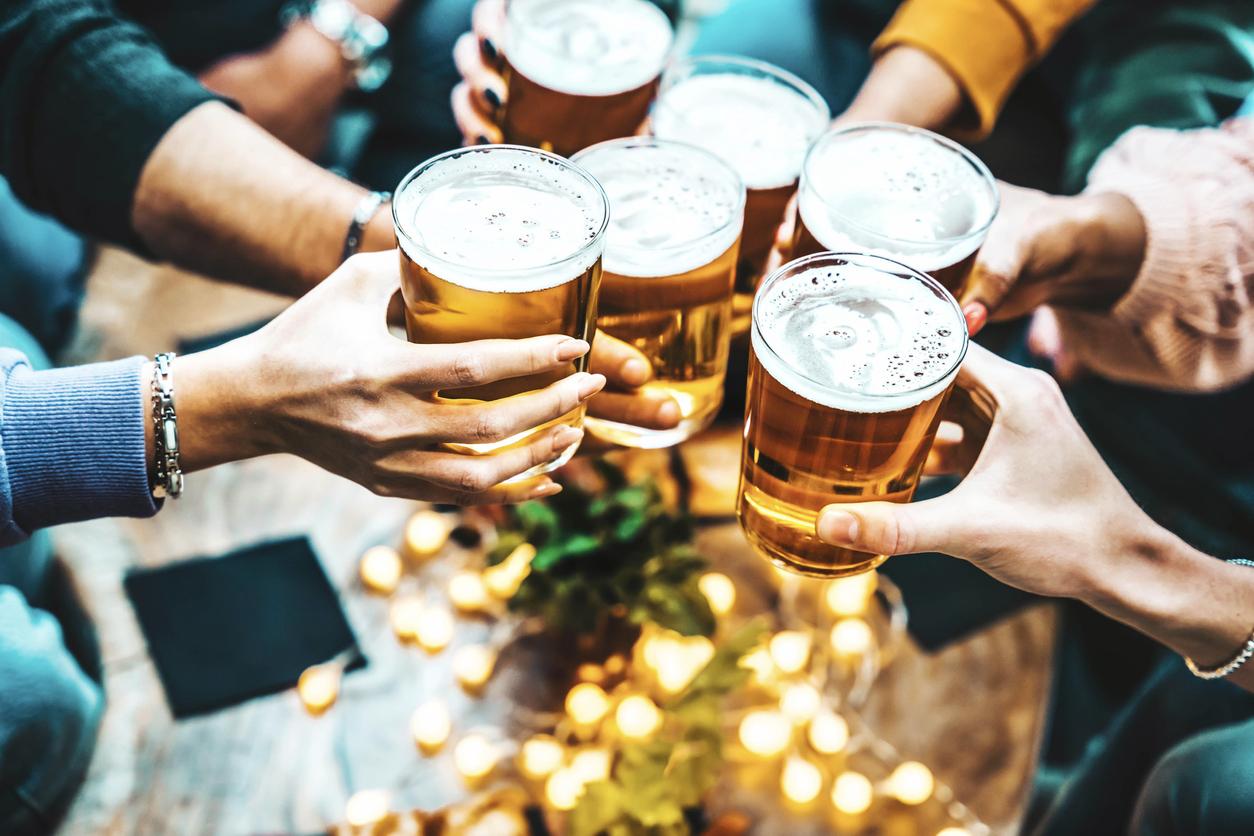
- The lack of alcohol in non-alcoholic beer – particularly during manufacturing and storage – can create conditions conducive to the growth of microbial agents.
- During the experiment, E. coli O157:H7 and S. enterica bacteria doubled in alcohol-free beer stored at 13 degrees.
- Researchers therefore recommend the implementation of specific procedures during manufacturing such as pasteurization to limit risks.
Although alcohol-free beer is, in fact, alcohol-free, it could pose a health risk, according to a university study Cornell. Researchers have discovered that foodborne bacteria and pathogens can take advantage of the absence of alcohol to proliferate in the beverage during manufacturing and storage.
Their work was published in the journal Journal of Food Protection.
THE non-alcoholic beers more vulnerable to bacteria
To enhance the flavor of non-alcoholic beers, brewers add additional flavoring materials – such as hops – to their beverage. This procedure is also likely to introduce pathogens. But theThe absence of alcohol and other elements linked to traditional beer, such as low oxygenation or low PH, can favor their development, according to university researchers Cornell.
To understand the risks associated with non-alcoholic beer, scientists conducted an experiment where they introduced E. coli O157:H7, Salmonella enterica and Listeria monocytogenes in non-alcoholic beer samples. The drinks were then stored at two different temperatures (3.8 degrees and 13 degrees) during two months. The analyzes carried out subsequently showed that the pathogens were able to develop and survive in alcohol-free beer. In detail, the E. coli O157:H7 and S. enterica added doubled when stored at 13 degrees. In contrast, Listeria bacteria was undetectable at both temperatures and under all conditions.
“When you take away the alcohol, it’s really not more of a traditional beer”explains the head of the study, Professor Randy Worobo. “We suspected that foodborne pathogens could thrive without the presence of alcohol. We were right. At this point, you should consider non-alcoholic beer as a food and ensure that all parameters are met ensuring the safety of the product.”

Alcohol-free beer: pay attention to manufacturing and storage methods
Indeed, faced with these worrying results, researchers recommend that non-alcoholic beers be subjected to specific treatment processes in order to reduce microbial risks.
“Low and non-alcoholic beers must be pasteurized to achieve commercial sterility. Sterile filtration and the addition of preservatives should be considered as additional steps to reduce this microbial risk.”write the researchers in their communicated.
According to them, it is also essential that the equipment used to serve these beers is regularly cleaned and disinfected in order to eliminate possible food pathogens.
“Without alcohol in beer, you remove a lot of the safety net against foodborne pathogens”concludes Randy Worobo. “Without this protection that alcohol offers, manufacturers must consider how pathogens may be incorporated from raw products during processing.“










